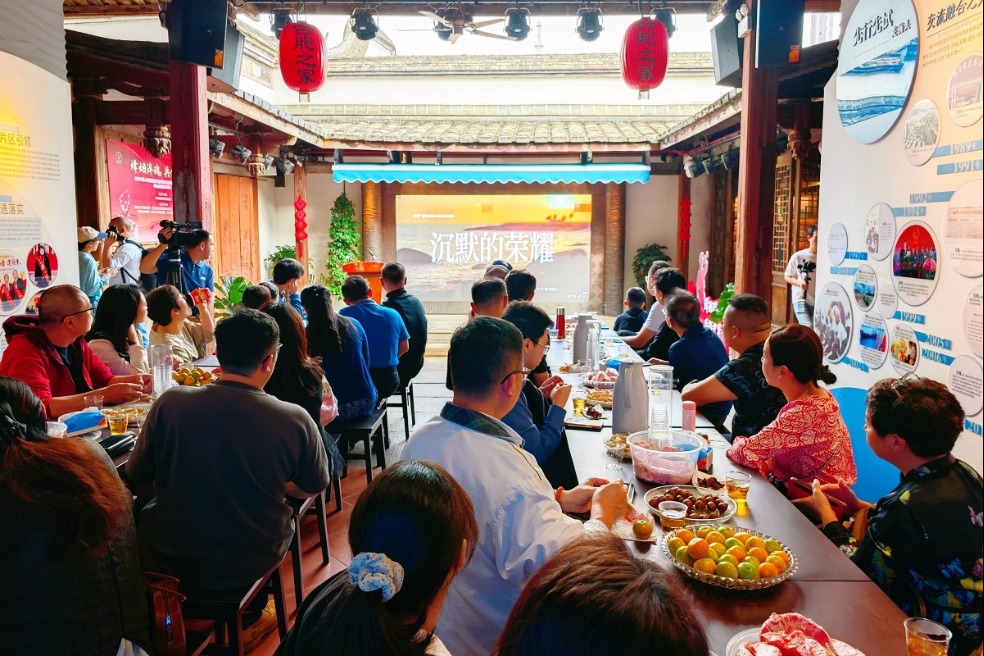Report urges more oversight for food industry

China has made steady improvements in food safety protocols in recent years, but enhanced oversight is still needed for the nation's food industry chain — particularly for online food sales and school meals, according to a report delivered to the nation's top legislature on Sunday.
Over the past five years, China has maintained a consistently high pass rate in food safety sampling inspections, said Cai Dafeng, vice-chairman of the Standing Committee of the National People's Congress, in the report.
The nation made amendments to its Food Safety Law in 2015, and both the central and local governments have introduced multiple supporting regulations. Cai said that a legal framework for food safety has largely taken shape.
To date, the National Health Commission has issued nearly 1,700 national food safety standards, covering more than 340 categories of commonly consumed foods.
Local governments have also formulated 171 regional standards, which have "played a positive role in promoting signature local dishes", according to the report.
For example, in the Guangxi Zhuang autonomous region, local standards for river snail rice noodles have helped drive the total output value of its industrial chain to exceed 75 billion yuan ($10.5 billion).
In recent years, authorities have carried out campaigns targeting meat products, counterfeit alcohol and the misuse of food additives. About 2.5 million food safety violations have been investigated, resulting in occupational bans for over 280,000 individuals and fines totaling 16.2 billion yuan.
Through the national 12315 consumer hotline, around 9.2 million food-related complaints have been handled over the past five years, recovering 230 million yuan in economic losses.
While acknowledging these achievements, the report calls for enhanced oversight across the entire food industry chain, improved testing capacity, stricter enforcement of standards, and better regulation of emerging sectors such as online food sales and school meals.
The report points out that conventional supervision methods are inadequate for addressing violations in new business models such as e-commerce, food delivery and livestreaming sales, where illegal activities are often hidden and conducted online.
"Currently, some leading online platforms have only established license verification systems with about 10 provinces or cities," the report said. "The permit databases for small food producers and vendors remain incomplete, making it difficult to fully authenticate merchants registering online."
To address these gaps, the report recommends expanding the use of smart supervision technologies, integrating online and offline oversight, and establishing a nationwide data-sharing mechanism that would allow platforms to quickly verify merchant credentials and identify potential risks.
It also emphasizes the need to strengthen the review responsibilities of online platforms, increase penalties for illegal behavior and enhance regulation of delivery-only kitchens that lack dine-in facilities.
Another key supervision area is school catering. Data shows that about 93 percent of primary and secondary schools have established parent committees for canteen oversight, with more than 160,000 supervisors conducting monthly food safety inspections.
By the end of 2024, local governments had invested a total of 10.3 billion yuan in efforts to upgrade school canteens.
However, issues remain, including insufficient food sampling, illegal additive use, a shortage of qualified food safety managers and inadequate regulation of mobile food vendors near campuses.
The report urges education authorities to strengthen food safety education and management, particularly in private schools, and to encourage deeper involvement of parent committees. It also calls for the enhanced training of canteen workers, more frequent random inspections and the creation of a list of problematic suppliers.
wangxiaoyu@chinadaily.com.cn





































